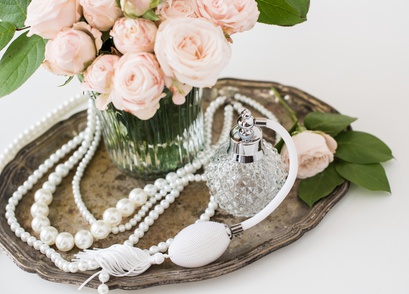Merv Griffin was a talk-show host before the Jimmies, before Craig or Seth or Jon or Conan or Leno or Letterman. Merv was a star-struck man who asked his guests safe questions:
“Do you like to cook?”
Due to the magic of reruns, I slipped back in time to November 23, 1973, when he interviewed the glamorous wives of famous men like Robert Stack and Johnny Carson and Dean Martin and Aaron Spelling and Sammy Davis, Jr.
“Oh, yes,” said one of the wives. “I’m a good cook.”
“Do you go grocery shopping?” Merv’s voice was soft, eager.
Spelling’s wife giggled. “Sometimes,” she said.
Silly questions, predictable answers.
Were any of the wives involved in important causes? Would Merv ask Michelle Obama if she cooked and shopped?
Who cares?
Well, evidently I do.
For some unfathomable reason, I was riveted. Maybe it was the memories that tugged at me. My junior high school graduation, when I wore my hair curled, and piled high on my head. The days when I wore lace and white sandals and Lauren cologne.
Two by two, they came out as Merv ran a commentary: “Mrs. Martin is wearing a designer gown by Oscar de la Renta…” She pivoted and posed, then took a seat. “And Mrs. Stack is wearing a knock-off, one the home sewer can create from a Vogue pattern for thirty-eight dollars.” Pivot, pose, sit.
“Would you buy these outfits?” Merv asked each woman.
The one in the knockoff said, “Well. No.” Gently.
I was captivated by their grace and charm.
There were a dozen women, sitting with their legs tucked to one side. They spoke in tones reserved for libraries or Presidential visits. Their nails shone, their hair tumbled to their shoulders in light waves, their teeth flashed Pepsodent smiles. But what struck me most about the wives was their femininity.
No galumphing around in old jeans and scuffed running shoes.
“Do you dress like this at home?” Merv asked.
One of them said she wore slacks. Not pants. Slacks.
Tasteful.
“Do you remember your husband’s proposal?” Merv asked Dean Martin’s wife.
“Which one? He kept forgetting that he’d already asked me four times.”
‘Atta girl.
Dolly, the wife of Dick Martin from Laugh-In fame, admitted that her hair color came from a bottle. “Oh, yes,” she said, pointing to her red tresses cut in a stylish shag. “I’m getting old.”
“How old are you?”
“I’m 29!” she said.
Merv almost choked.
“My husband is 59!” she said, and covered her mouth, laughing. “But he looks great, doesn’t he? That’s because of me.”
They claimed their successes.
“The most important thing to my husband is work, after me!” Sammy’s wife said.
They didn’t waste time with humility.
Too soon, the program was over. And I was left with one burning question of my own:
What would the wives do in my situation?
If Mrs. Carson, before she became Mrs. Carson, lived in my playhouse, would she paint the coffee-colored walls a pristine adobe white? Would she take down the dance posters, the Chinese lantern on a hook in a corner collecting dust, the plastic files screwed to a plank, and hang something tasteful—a Van Gogh, perhaps? Would she buy pale pink roses every week and display them on the dresser in a cut-glass vase, next to a silver tray holding her perfume bottles? Most definitely she would eliminate the clutter of books. The desk would hold a sleek laptop and a table lamp. The sheets would be silk, the pillowcases edged in lace. The ironing board would be hauled to the garage and replaced by a comfortable chair to curl up in with a book. Valley of the Dolls, perhaps.
The wives were all class and grace. I can develop those manners, that soft voice, that proud posture. I can spend hours giving myself facials and manicures, and soaking in fragrant bubble baths, followed by a dusting of talc or a spritz of perfume. I can save my pennies to buy only the finest in fashions, a few select pieces that I handle with care and hang on padded hangers. I can eat meals on good china, with heavy silverware, cutting my lean meat into bite-sized pieces, the fork tine-side down as I bring it delicately to my mouth. I can aspire to be like these paragons of femininity, asking myself in tough situations, “What would the wives do?”
Instead, I yank on the old jeans, the Gap t-shirt, the running shoes. I pile books onto my dresser, papers on my desk, mail and notebooks and magazines in my hanging files. My sheets come out of the dryer wrinkled, and undone projects lie about on every available surface: a book cracked open at the spine, the Panasonic phone manual to read, the file of bills to pay.
I do my own grocery shopping.
And I cook, but I’m lousy at it.
What would the wives do if their paycheck barely stretched through the month? Would they set their sights on a better paying job, or a husband? I can’t imagine they’d stay stuck. A woman wallowing in a rut wouldn’t attract the attention of the Carsons and Spellings and Martins.
It’s a good bet the wives wouldn’t be in Target buying socks.
Okay, maybe they were blessed with perfect genes, and a wealthy upbringing, and braces. Maybe they had a pampered existence their whole life.
But I wonder, can making those small changes—fresh flowers, smooth sheets, expensive perfume, tailored outfits—affect the results in my life? I believe so. I believe, by surrounding oneself in class, in beauty, it affects the soul, it changes the posture, it rewires the brain, it prompts a brighter outlook. Treating oneself as worthy of finery, with dignity and respect, dictates what you’ll allow in your life.
None of those wives settled. Not even for a knock-off.
What do you think?


